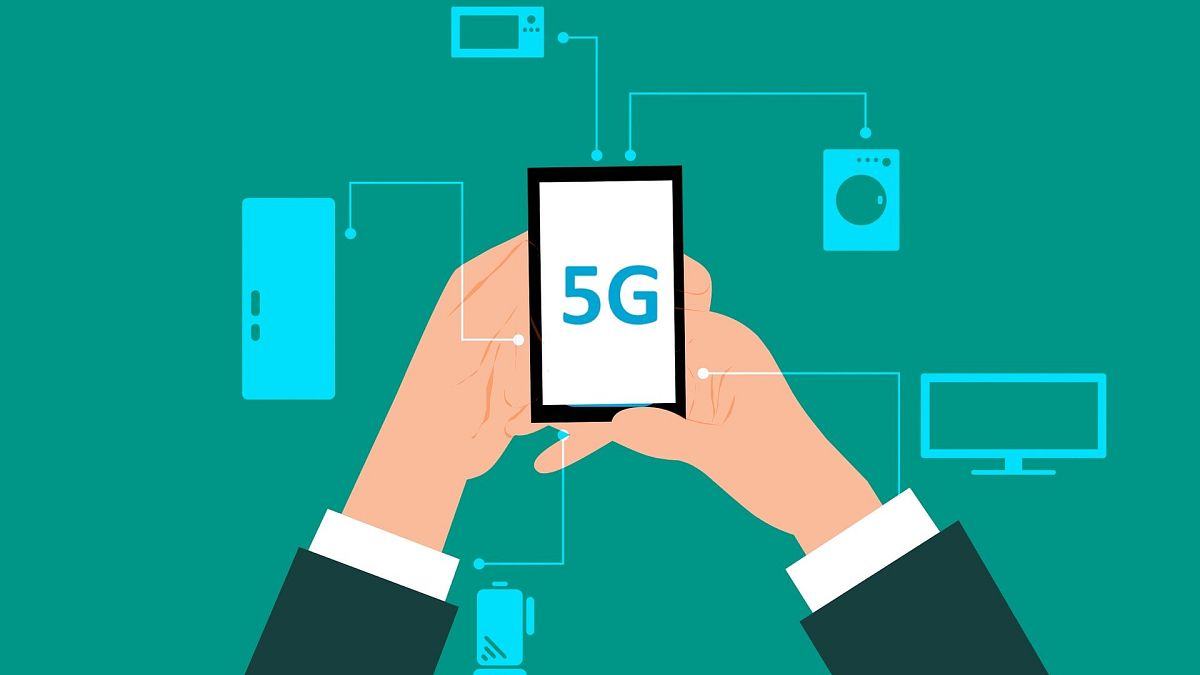5G will enable users to download whole movies in seconds but will require many more antennas, raising health fears.
After years of tests and experiments, the fifth generation of telecommunication systems — 5G — is scheduled to be introduced on a large scale in Europe in 2020.
But what exactly is 5G and how will it change our lives?
What's 5G?
5G networks represent the next generation of mobile Internet connectivity. It will offer ultra-high bandwidth as well as more reliable connections with smartphones and other devices. It will be at least 100 times — and as high as 1,000 times — faster than 4G, allowing for high-resolution movies to be downloaded in mere seconds.
What advantages will it bring?
5G is designed for a world where billions of devices will be dependent on a constant internet connection.
The first mobile phones that support the 5G network have been available in Europe since last September. In many countries, the first network infrastructures have also already been completed.
The European Commission has described it as "one of the most critical building blocks of our digital economy and society in the next decade".
5G's speed and low latency connectivity — which allows devices to process a very high volume of data messages with minimal delay — will boost artificial intelligence as well as cloud computing, the Commission said.
Over time, the entire economic activity will be influenced by the new 5G infrastructures, accelerating the digital transformation of companies and, consequently, the fourth industrial revolution.
The automotive, transport and distribution industries, as well as infrastructure networks and healthcare, are all sectors that will be transformed by the advent of 5G.
Driverless trucks and cars, "smart" buildings and cities and remote medical interventions are just some of the innovations possible thanks to 5G.
How long will we have to wait?
5G technology is currently being developed worldwide.
The EU adopted its action plan for the technology in 2016 with the objective of launching 5G services in all 28 member states by the end of 2020 at the latest, followed by a rapid build-up to ensure uninterrupted coverage in all urban areas and along major transport paths by 2025.
Between 2014 and 2020, the bloc spent €700 million on 5G technology with the private sector estimated to have invested more than €3 billion. Finnish telecommunications company Nokia, announced last year for instance, that it had secured a €500 million loan from the European Investment Bank to develop its 5G network. Sweden's Ericsson, meanwhile, secured €250 million.
According to an analysis by the Global System for Mobile Association (GSMA), it is estimated that by the middle of the decade about one in three mobile connections will use fifth-generation networks. In particular, the penetration of 5G technology in Europe is estimated at 31% in 2025, which translates into 217 million connections.
Antennas and frequencies
The frequency waves used by 5G have a shorter range than for previous systems. That means more antennas, closer to the ground, are needed.
The frequencies used in the implementation phase of 5G networks (3.5 GHz and 700 MHz) are slightly different from the frequencies currently used, but this does not mean that these changes affect the way the antennas work. The 26 GHz band will be used in the next phase for specific services.
Is 5G bad for your health?
This is not yet known. So far no one has been able to answer this question. Many argue that as more antennas are needed, health risks will increase proportionately.
But these antennas should be state-of-the-art antennas and the electromagnetic radiation emitted should be significantly lower than the levels emitted by the existing 4G / 3G / 2G networks.
Still, some groups in Europe are lobbying against the technology, including grONDES (a play on word with the French words for rumble and waves) which argued earlier this year that "the number of scientific studies carried out by respected institutes and organisations which confirm the harmfulness of mobile technologies for the health and the environments is constantly increasing."
A report from the EU Commission released last year noted however that "studies have not yet yielded clear evidence of the impact on mammals, birds or insects".
"The lack of clear evidence to inform the development of exposure guidelines to 5G technology leaves open the possibility of unintended biological consequences," it added.
Is it the end of 4G?
No, because 5G will not be immediately and uniformly implemented worldwide so the two systems will continue to exist alongside one another, especially as not all devices are 5G-compatible.
